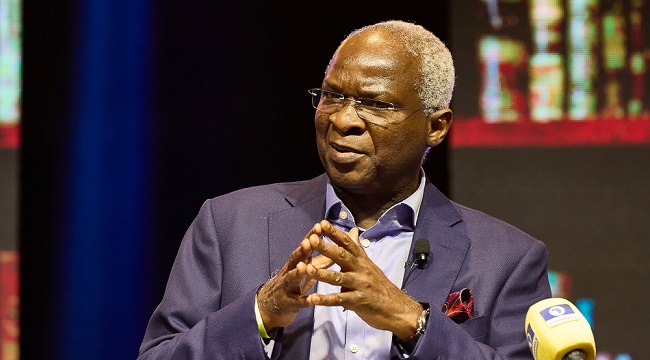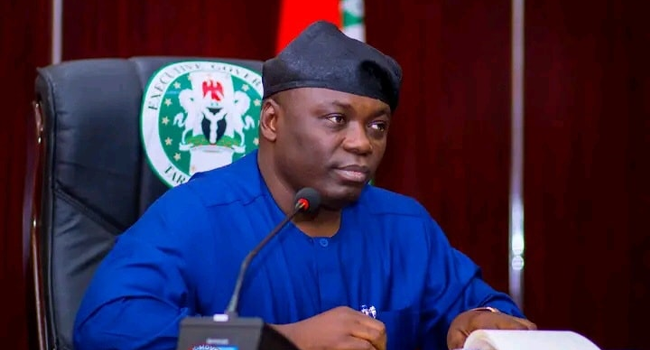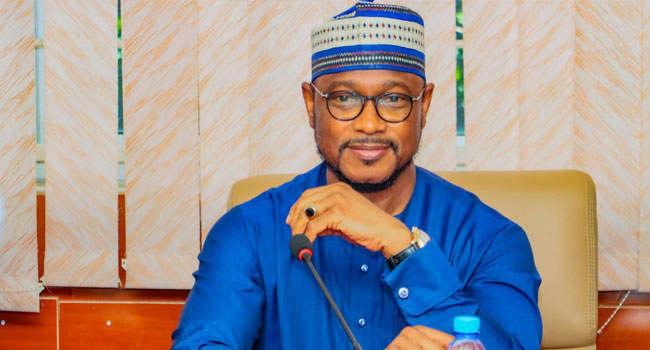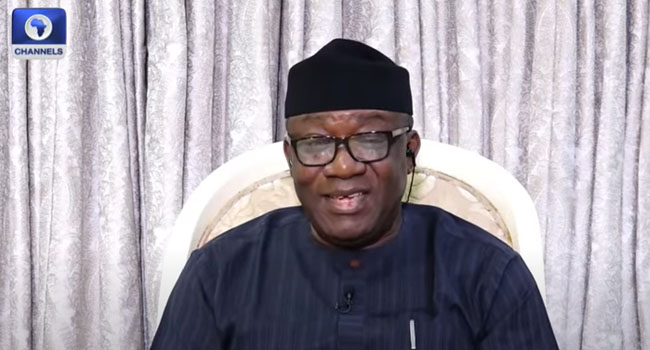With talks about a new minimum wage for workers being on the front burner of public discourse, former Minister of Works, Babatunde Fashola says income earners in Nigeria deserve reasonable adjustments to cope with the rising cost of living in the country.
“When cost of living rises as they have now, the lowest and the highest income earners are impacted to varying degrees and therefore deserving of reasonable adjustments whether they earn wages or salaries,” the former Lagos State governor said in a piece titled, ‘Minimum Wage Review – My Take Away’.
Fashola also faulted Section 4(1)(b) of the National Minimum Wage Act 2019 which exempted “an establishment employing less than 25 persons” from being bound by the provisions of the Act to pay the minimum wage.
The former minister said the exemption of such establishments “raises serious doubts about whether we have enacted a minimum wage Act if small businesses who barely have 25 employees but who employ the largest number of the most vulnerable people are exempted from the law as currently legislated”.
“Who then is the law protecting?” he asked.
‘NASS Can’t Legislate On Salaries’
Fashola, a Senior Advocate of Nigeria (SAN), said item 34 of the 1999 Constitution as amended in the Exclusive Legislative list confers power on the National Assembly to prescribe a national minimum wage for the Federation and not a monthly salary.
He said though wages and salaries are common methods of compensation open to the employer, the former is a fixed annual amount, payable at weekly, bi-weekly or monthly subject to agreement, while the latter refer to payment based on an hourly rate and the number of hours the employee works.
“Therefore, it seems obvious from this definition that by making a law in Section 3(1) of the Minimum Wage Act that the minimum wage of N30,000 shall be paid monthly, the NASS may have acted unconstitutionally by legislating on a SALARY (monthly payment) when they only have power to legislate on WAGES, an hourly payment.
“This is important while the conversation on minimum wage is being had in 2024 because in Section 3(4), the minimum wage “shall be reviewed in line with the provisions of this Act” which includes Section 3(1) that has prescribed a monthly amount instead of an hourly wage.”
“Of course, if and when we decide as a country on the implementation of a proper minimum wage, we must then design a formula to review salaries of those who do not earn wages in order to assist them deal with cost-of-living challenges.
“This may yet be the most fruitful outcome of the dilemma of appropriate employee compensation as it may lay the foundation for national productivity, wealth creation and prosperity. The opportunity is too big to miss or waste,” he added.
The former governor urged experts in labour law and compensation matters to put their thinking caps on and seek help from the best faculties around the world.
“As we do this, we must be mindful of the need for a possible amendment to item 34 of the Exclusive list in the constitution to include salaries because it currently does not.”
Protracted Deadlock
After weeks of failed talks on a new minimum wage for workers in the country, the Organised Labour declared an indefinite industrial action on Monday, June 3, 2024. Businesses were paralysed as labour shut down airports, hospitals, national grid, banks, National Assembly and state assemblies’ complexes.
The labour unions said the current minimum wage of ₦30,000 can no longer cater to the wellbeing of an average Nigerian worker, saying government should offer workers something economically realistic in tandem with current inflationary pressures, attendant effects of the twin policies of petrol subsidy removal and unification of the forex windows of the current administration.
The labour unions also lamented that not all governors are paying the current wage award which expired in April 2024, five years after the Minimum Wage Act of 2019 was signed by former President Muhammadu Buhari. The Act should be reviewed every five years to meet up with contemporary economic demands of workers.
In January 2024, President Bola Tinubu inaugurated a tripartite committee to negotiate a new minimum wage for the country.
At the start of negotiations, Labour presented ₦615,000 as the new minimum wage but saw reasons to drop their demand to ₦497,000, and then to ₦494,000.
Also, in the beginning, the government and the Organised Private Sector proposed ₦48,000, ₦54,000, ₦57,000, and later ₦60,000, all four offers were rejected by Labour, prompting the strike.
In the heat of the impasse and the attendant consequences of the strike last Monday, June 3, 2024, the Secretary to the Government of the Federation (SGF), George Akume, said the President was committed to a wage above ₦60,000, and that the government side of the tripartite committee would meet with labour for one week to agree on a wage.
Persuaded, labour “relaxed” its industrial action on Tuesday, June 4, 2024, some 24 hours after the strike. Both leadership of the Trade Union Congress (TUC) and the Nigeria Labour Congress (NLC) subsequently resumed talks with the representatives of the Federal Government, states, Organised Private Sector.
The President also directed Minister of Finance, Wale Edun, to present a template for a new minimum wage. Before the directive, the minister described as “unaffordable, the demands of labour. The 36 state governors said labour’s demands was not sustainable. Local government administrations also described the demands of the NLC and TUC as unrealistic.
However, on Friday, June 7, 2024, the two sides (labour and the government) failed to reach an agreement. While labour dropped again its demand from ₦494,000 to ₦250,000, the government added ₦2,000 to its initial ₦60,000 and offered workers ₦62,000.
Both sides submitted their reports to the President who is expected to make a decision and send an executive bill to the National Assembly to pass a new minimum wage bill to be signed into law by the President.
In his Democracy Day speech on June 12, 2024, the President assured the Organised Labour that an executive bill on the new national minimum wage for workers would soon be sent to the National Assembly for passage.




